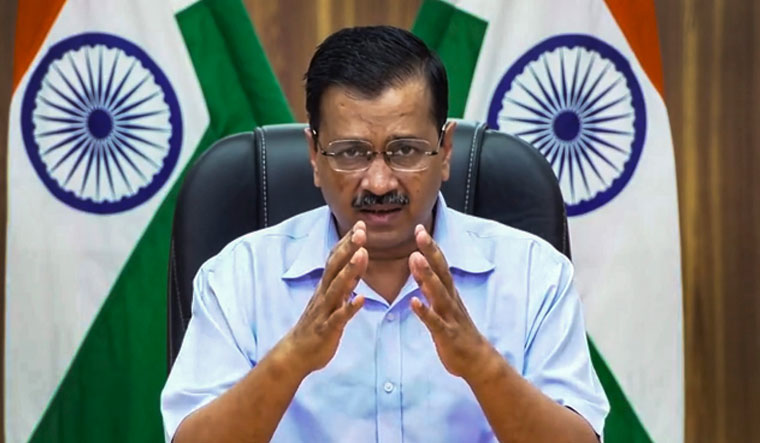Delhi Chief Minister Arvind Kejriwal on Tuesday said his government is gearing up to fight a possible threat of the Omicron variant of coronavirus and has prepared 30,000 oxygen beds and also ramped up oxygen supply and storage facilities.
The chief minister held a meeting with government departments to review the preparations to deal with a possible third wave.
"This time, we have prepared 30,000 oxygen beds. Out of these, 10, 000 are ICU beds. There are 6,800 beds under construction that will be ready by February, he said.
In every municipal ward we will be able to prepare 100 oxygen beds at a notice of two weeks. There are 270 municipal wards which means we will be able to prepare 27,000 beds at a short notice," he said in an online media briefing.
The chief minister also said that the government is ordering 32 kinds of medicines to create their buffer stocks of two months and training manpower.
The preparations for home isolation are also being done, he said.
The national capital grappled with an oxygen crisis during the second wave in April and May, the chief minister said, adding the government has created an extra storage facility of 442 metric tonnes of medical oxygen, something that was not there during the previous wave.
We had zero capacity to produce oxygen. We have installed PSA plants that can produce 121 MT oxygen. Last time, the hospitals were sending out sending out SOS messages for oxygen. We have directed to install telemetry devices in all oxygen tanks across Delhi so that our war room will be in the know where oxygen is running out," he said.
The government has imported 6,000 cylinders from China and there are three private refilling plants that can fill 1500 cylinders per day and we have put up two bottling plants that can fill 1400 cylinders on a daily basis, he said.
In April and May, Delhi battled a brutal second wave of the pandemic that claimed a huge number of lives and led to a shortage of oxygen and essential drugs at hospitals.
On April 20, Delhi had reported 28,395 cases, the highest in the city since the beginning of the pandemic last year. On April 22, the case positivity rate was 36.2 per cent, the highest so far.
The highest number of 448 deaths was reported on May 3.





